Project Management
Embracing Remote Work: How GitLab Transformed Project Management
The COVID-19 pandemic reshaped the working lives of millions, forcing companies worldwide into remote working scenarios they had never imagined possible. What began as a forced adaptation soon became the norm—and for many, the preferred choice. Even after restrictions lifted, remote work continued to thrive as a productive and desirable model, offering numerous advantages:
- Time Savings: Commuting became obsolete, freeing hours for productive tasks or personal enrichment.
- Geographical Freedom: Employees can now live and work wherever they choose, driven by personal preferences rather than office locations.
- Enhanced Flexibility: Managing one's schedule became easier, leading to improved productivity and work-life balance.
However, remote work isn't without challenges. It can blur the lines between personal and professional life, creating scenarios where workdays seem endless. Constant "online" availability can exhaust workers just as much as commuting. Thus, effective remote work demands careful and conscious organization.
GitLab's Approach to Building Remote Culture
itLab stands out as a pioneer in embracing remote work long before it became mainstream. By intentionally crafting processes tailored for distributed teams, GitLab transitioned successfully from traditional office environments to a fully remote operation, establishing itself as a benchmark in remote project management.
Why GitLab?
GitLab's strategic foresight led it to build effective remote work practices well ahead of the pandemic. The company fully re-engineered its internal processes, prioritizing remote-first principles and adapting communication, documentation, and management to support distributed teams. Their experience has become invaluable, providing a blueprint not just for individuals but also for project managers aiming for transparency and efficiency in remote environments.
Why GitLab?
GitLab's strategic foresight led it to build effective remote work practices well ahead of the pandemic. The company fully re-engineered its internal processes, prioritizing remote-first principles and adapting communication, documentation, and management to support distributed teams. Their experience has become invaluable, providing a blueprint not just for individuals but also for project managers aiming for transparency and efficiency in remote environments.
GitLab’s Core Remote Work Principles
Work from Anywhere: Employees choose their optimal working locations, opening global access to top talent.
Asynchronous Communication: Prioritizing written, asynchronous methods over constant meetings, allowing team members to work efficiently within their personal schedules.
Documentation First: Comprehensive documentation ensures transparency, clarity, and universal access to critical information, minimizing misunderstandings and information loss.
Transparency: Every team member can access project information, preventing secretive decision-making and fostering trust.
Flexible Scheduling: Productivity is measured by output rather than hours spent online, emphasizing results over traditional work hours.
Open Communication Channels: Employees are encouraged to openly propose changes or improvements, ensuring continuous evolution and inclusivity.
Work-Life Balance: GitLab explicitly prioritizes employee wellbeing, aiming to prevent burnout and support sustainable productivity.
Cultural Diversity: With global teams, GitLab actively nurtures cultural sensitivity and inclusive communication.
These principles build cohesion and community, bridging geographical gaps and enhancing collaborative effectiveness.
Asynchronous Communication: Prioritizing written, asynchronous methods over constant meetings, allowing team members to work efficiently within their personal schedules.
Documentation First: Comprehensive documentation ensures transparency, clarity, and universal access to critical information, minimizing misunderstandings and information loss.
Transparency: Every team member can access project information, preventing secretive decision-making and fostering trust.
Flexible Scheduling: Productivity is measured by output rather than hours spent online, emphasizing results over traditional work hours.
Open Communication Channels: Employees are encouraged to openly propose changes or improvements, ensuring continuous evolution and inclusivity.
Work-Life Balance: GitLab explicitly prioritizes employee wellbeing, aiming to prevent burnout and support sustainable productivity.
Cultural Diversity: With global teams, GitLab actively nurtures cultural sensitivity and inclusive communication.
These principles build cohesion and community, bridging geographical gaps and enhancing collaborative effectiveness.
Project Management in a Remote Environment
Effective remote project management requires predictability, clarity, and agility. GitLab adapted project management processes to leverage these principles, focusing on:
- Asynchronous Decision-Making: Reducing dependency on real-time meetings, enhancing productivity.
- Robust Documentation: Centralized knowledge hubs accessible to everyone, facilitating clarity and continuity.
- Complete Transparency: Clear visibility into project progress for all team members.
- Results-Oriented Evaluation: Assessing performance based on outcomes rather than hours spent.
- Integrated Project Management Tools: Unified digital platforms streamline workflow and reduce context switching.
- Continuous Improvement: Regularly reviewing and refining processes to address emerging challenges and optimize workflows.
Personal Recommendations for Effective Remote Work
Beyond adopting GitLab’s strategic principles, personal discipline is crucial. Key practices include:
- Daily Rituals: Clearly define your working hours and boundaries. Simple routines like changing clothes or taking a short walk can psychologically differentiate work from personal life.
- Optimal Workspace: Invest in ergonomic furniture, adjustable desks, high-quality monitors, and audio gear. These essentials greatly enhance productivity and health.
- Regular Breaks and Fresh Air: Regular breaks for physical activity and fresh air boost productivity and mental clarity.
- Clear Boundaries: Set strict rules about availability and notifications outside working hours to maintain work-life balance.
- Social Connectivity: Regular virtual interactions and team check-ins combat feelings of isolation, maintaining morale and team cohesion.
Conclusion
When executed intentionally, remote work offers immense freedom, control over time, and reduced stress. However, without clear boundaries, it can easily lead to burnout and isolation. Conscious organization, effective use of AI-powered tools, and strong remote management practices, exemplified by GitLab, can ensure a balanced, productive, and fulfilling remote work experience.
Read related posts
